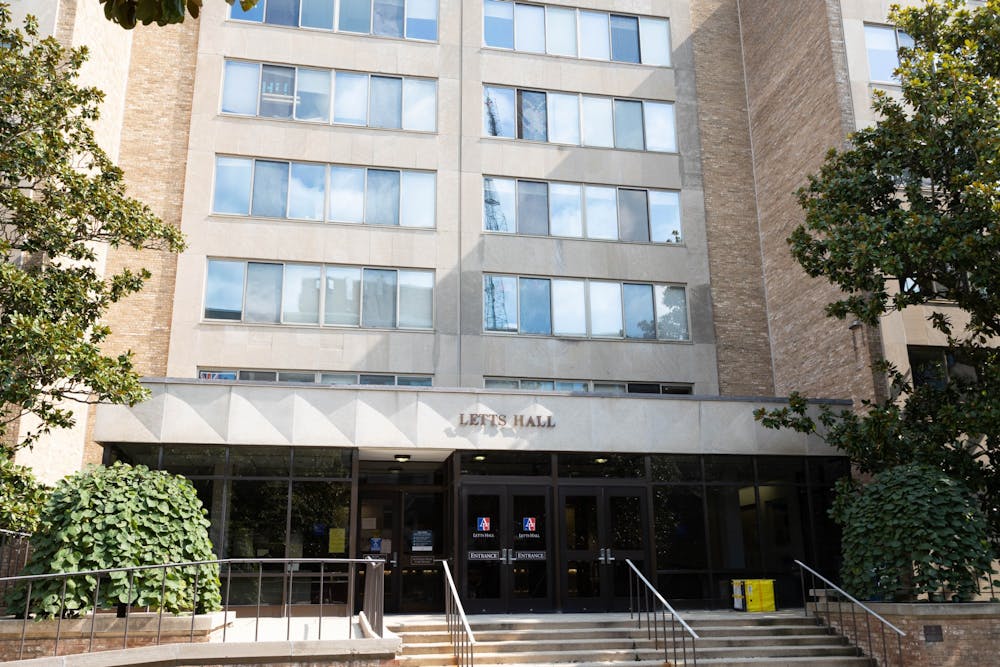Students who live on campus will be charged an administrative fee of $25 on their third lockout request starting Oct. 17, Housing and Residence Life announced in an email on Oct. 12.
HRL wrote in the email that as of Oct. 6 they have tracked 1,244 lockout requests across all residence halls on campus since the beginning of the semester.
This change is being made to “address the high volume of lockout requests and to ensure resident students are proactive with maintaining access to their room and building,” according to the email.
HRL officials wrote that the OneCard is an integral part of “safety and security of all who live in residence halls.”
Prior to the announcement of these policies, students voiced concerns over the lockout system implemented this semester. In the past, students who were locked out of their dorms could pick up a temporary keycard from a desk receptionist in their residence hall and return it immediately after use.
Now, the desk receptionist on duty must notify the AU Police Department’s communications team, which will dispatch a designated staff member to unlock the resident’s room between the hours of 8 a.m. and 8 p.m.. After 8 p.m., an RA on duty will be contacted to help students who are locked out. Although temporary key cards will still be issued, the amount of temporary key cards issued will be limited.
Zachary Cutler, a sophomore in the College of Arts and Sciences, works as a desk receptionist on the south side of campus, which includes Anderson, Centennial, Letts and Roper Hall.
Cutler said his colleagues were not properly writing down students’ information when they checked out a temp card, allowing for many to be lost or stolen.
“Even if we did know it was out, we wouldn’t know where to look for it because it was not jotted down on the website,” Cutler said.
During desk receptionist job training, Cutler said the University explained that the new lockout policy would train students for what it was like to be locked out of an apartment.
As a desk receptionist, Cutler said that his job is much easier, but as a student, he is frustrated with the policy.
“I think the job is dumbed down because now we have less work to do, so they really made this job easier for us,” Cutler said.
Griselda Jesse-Dodoo, a freshman in the School of Public Affairs, said she has been locked out of her dorm room twice, with her worst experience occurring when she was in her nightgown on her way to shower before her 8 a.m. class.
“I was in the Letts lobby in my nightgown waiting for AUPD for about an hour and I missed my 8 a.m.,” Jesse-Dodoo said.
The whole situation made her uncomfortable, since she was told she had to wait in the lobby for police to come while wearing sleep attire.
“I don’t want campus police to look at me right now,” Jesse-Dodoo said.
The most frustrating aspect of the new policy for her was the amount of time she had to wait for something that she felt should take seconds to solve.
“I missed a whole class because I was waiting for being locked out, which is absurd because education is important,” Jesse-Dodoo said.
Noah Gocial, a sophomore in SPA, shared the same frustration after he had a similar experience.
After he got locked out on the way to the shower, he said he had to wait around 35 to 40 minutes for the RA on duty to help him since AUPD was busy.
“It was really a terrible experience obviously because nobody wants to be locked out just in their towel,” Gocial said.
He also shared that calling AUPD is misleading because in other situations of him being locked out, a staff member of the police department has opened his door, not AUPD officers.
The Eagle reached out to AUPD for comment on the University’s lockout procedures and was directed to the University’s media relations department, which forwarded The Eagle the email sent to students by HRL.
A simple change of the name for who students should call might help avoid the negative stigma that surrounds police and the fear of an institution that students do not trust, Gocial said.
“It doesn’t matter what the intent is, or what the actual result is,” Gocial said. “It matters what people think because people also act on emotion.”
Correction: The subheadline of this story and the story have been updated to clarify that temporary keycards will be limited, not eliminated entirely.





